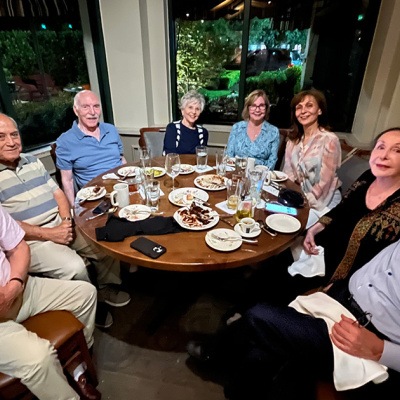Longhorn Startup Nourishes Student Entrepreneurs

In 2010, a UT computer science student named Elben Shira, BS ’11, posted an essay on his website about the department’s “second-rate” startup culture.
Shira lamented that he rarely heard the word "startup" in his computer science classes, which he said felt walled off from the action in Austin. "We need to fundamentally change the way UT computer science students look at our industry," he wrote. Shira recommended a course that would push students to create business plans, teach them about startups and investments, and make them “build something sellable and pitch it to investors, professors, and entrepreneurs.”
The post quickly gained more than 13,000 views and stirred up many entrepreneurial spirits in Austin’s tech scene, including that of Joshua Baer. Baer is the founder of Capital Factory, a startup accelerator in Austin, and he put Shira in touch with Bob Metcalfe, an inventor and entrepreneur whose title at UT is now professor of innovation.
Four and a half years later, the germ of an idea that started with that blog post has grown into the seventh-biannual Longhorn Startup Demo Day, with 13 teams of student startups pitching their businesses to the investors, professors, and entrepreneurs that Shira wanted to see.
Launched in fall 2011, the Longhorn Startup seminar and lab teaches students how to start a business and provides them with mentors and an atmosphere that foster entrepreneurship—almost identical to the class Shira dreamed of in 2010.
At this semester’s Demo Day on April 30, 1,000 business leaders and investors gathered to see student teams present companies and products like a concussion-sensing mouth guard and a real estate maintenance management program.
Prior to the student presentations, Metcalfe interviewed startup mogul Michael Dell, ’83, Life Member, Distinguished Alumnus, to kick off the demonstrations.
A student at UT for one year, Dell dropped out of college to start his now-famous computer company. The company still invests in startups and offers several mentoring programs.
According to Dell, a startup needs three things: a purpose, a problem, and a passion.
“You’ve got to have a purpose that’s meaningful, you’ve got to solve a problem that’s meaningful too, and you’ve got to have a passion for what you’re doing,” he said.
The teams participating in UT’s startup seminar and lab have each found a unique problem to address, and their passion was evident.
A few of the startups presented are already a couple years in the making, and some have raised thousands of dollars for their businesses. Some students who have completed the program in recent years have gone on to run successful small businesses. (The Alcalde featured one, Lynx Laboratories, a tech company that created a 3-D camera, two years ago when they presented their technology to President Obama.)
Dell noted that UT’s entrepreneurial spirit has grown since his days as a student.
“We’re blessed to be in a culture that embraces risk and innovation,” Dell said. “We’re in a culture that allows people to go and try new things. It’s about what you learned more than it is about making every decision perfectly.”
At UT, the decision to help students embrace risk and innovation may have been started because of Shira's bold essay, though Shira says he had no idea his "grumbling" would have such an impact. As evidenced by the hundreds of investors at Demo Day, Shira agrees that UT is no longer "second-rate" for startups.
"A key thing I've learned through Longhorn Startup is that there are probably more resources and people willing to help than you first think," Shira says. "It's easy to complain in an essay, but at some point you have to stop complaining and start working."
Above: Vaibhav Gupta, computer science and electrical engineering senior, presents Lyte Labs, a wearable diabetes-tracking software.






